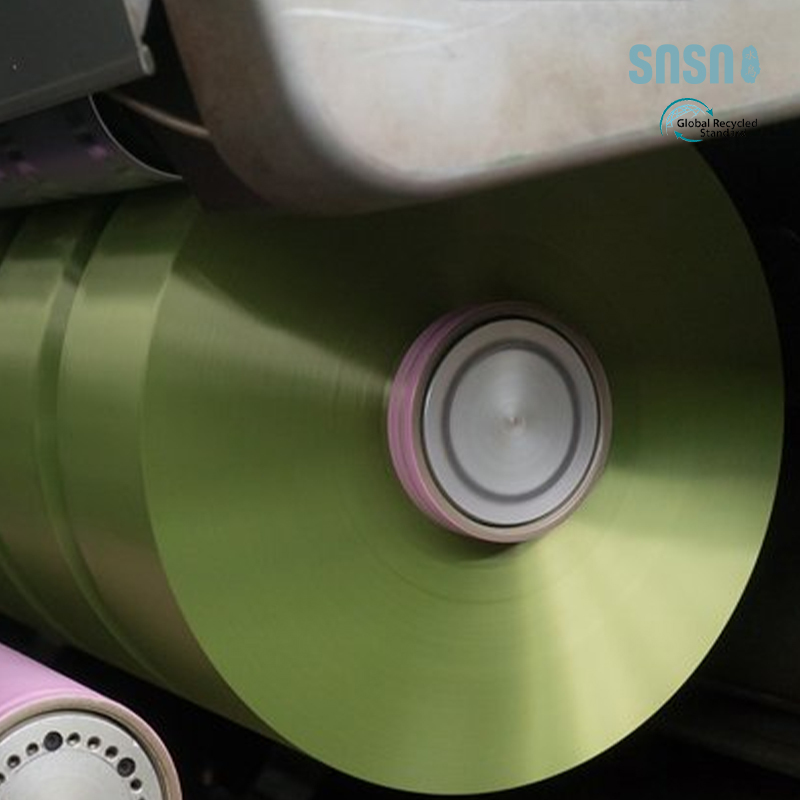Recycled polyester yarn differs from virgin polyester yarn in several ways, particularly in terms of color retention and performance:
Color Retention:
Virgin Polyester Yarn: Virgin polyester yarn, made from newly produced polymer, generally has excellent and consistent color retention. The yarn fibers are uniform, which allows dye to bond effectively, ensuring vibrant and long-lasting colors, even after repeated washing and exposure to light.
Recycled Polyester Yarn: Recycled polyester, made from post-consumer plastics (like PET bottles) or pre-consumer waste, may have slightly different dyeing characteristics due to potential impurities or variations in the recycled material. This can lead to slight inconsistencies in color absorption or fading over time. However, advanced recycling processes and improved dyeing techniques have significantly closed the gap in color retention between recycled and virgin polyester.
Performance:
Virgin Polyester Yarn: Virgin polyester is known for its high strength, durability, and resistance to stretching and shrinking. It offers uniform performance characteristics, such as high abrasion resistance and moisture-wicking properties, making it suitable for a wide range of applications, from fashion fabrics to industrial textiles.
Recycled Polyester Yarn: Recycled polyester generally has similar mechanical properties to virgin polyester, such as durability, strength, and moisture-wicking. However, there may be minor differences in the texture or feel of the yarn due to the recycling process. Some recycled polyester may also have slightly lower tensile strength or less uniformity, though high-quality recycled yarn can achieve near-identical performance to virgin polyester.

Environmental Impact:
Recycled polyester has a significantly lower environmental footprint than virgin polyester. It reduces dependence on petroleum, cuts down on energy consumption, and keeps plastic waste out of landfills and oceans. However, producing high-quality recycled polyester requires advanced processing to ensure that performance and color retention are comparable to virgin polyester.
While recycled polyester may present minor challenges in color retention and performance, improvements in technology have made it a highly viable and sustainable alternative to virgin polyester for most applications.

 English
English عربى
عربى Türk
Türk Español
Español



















